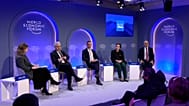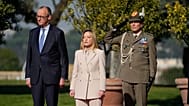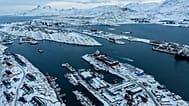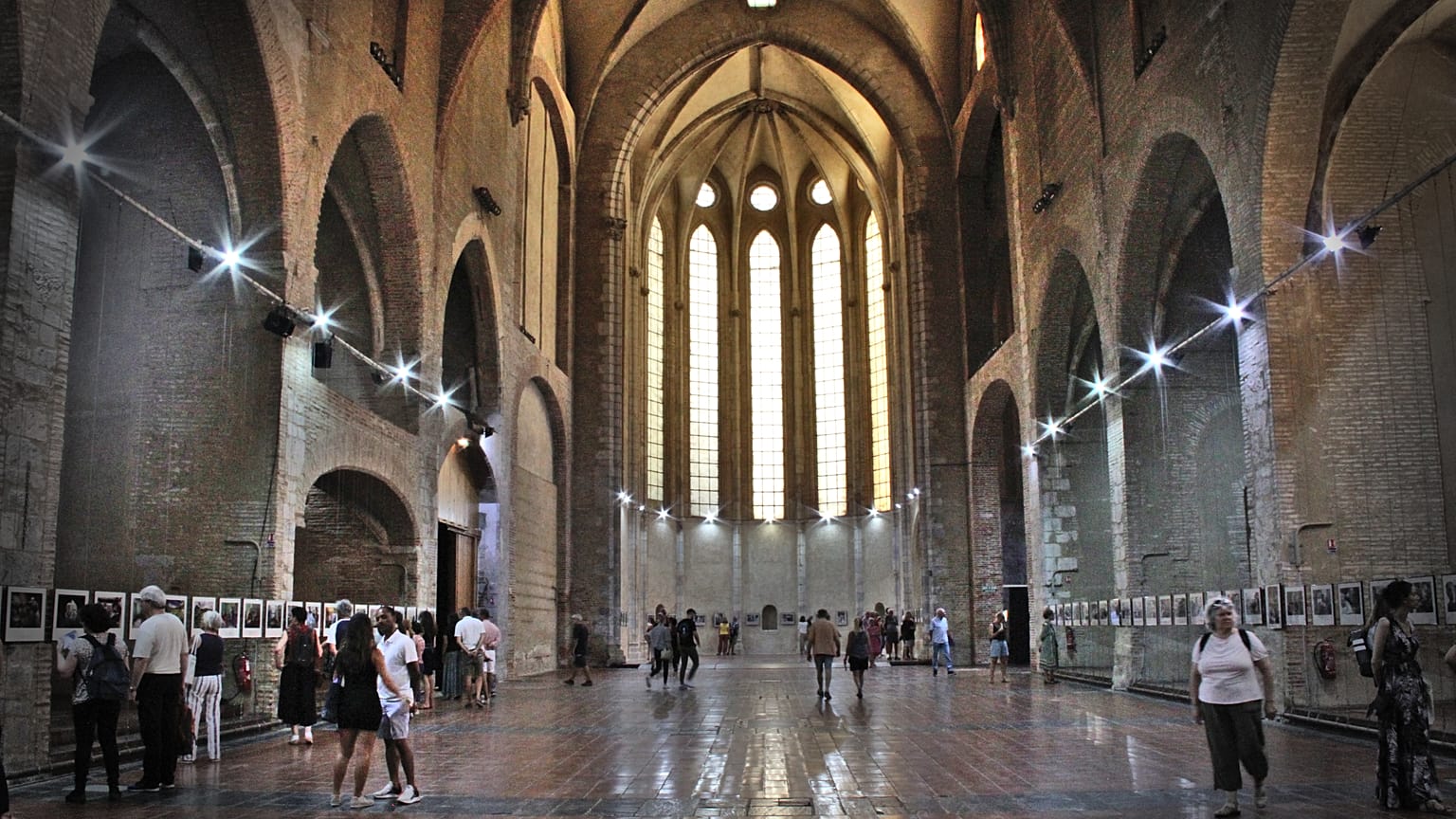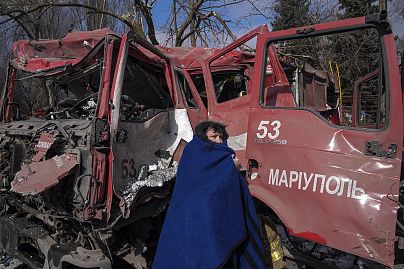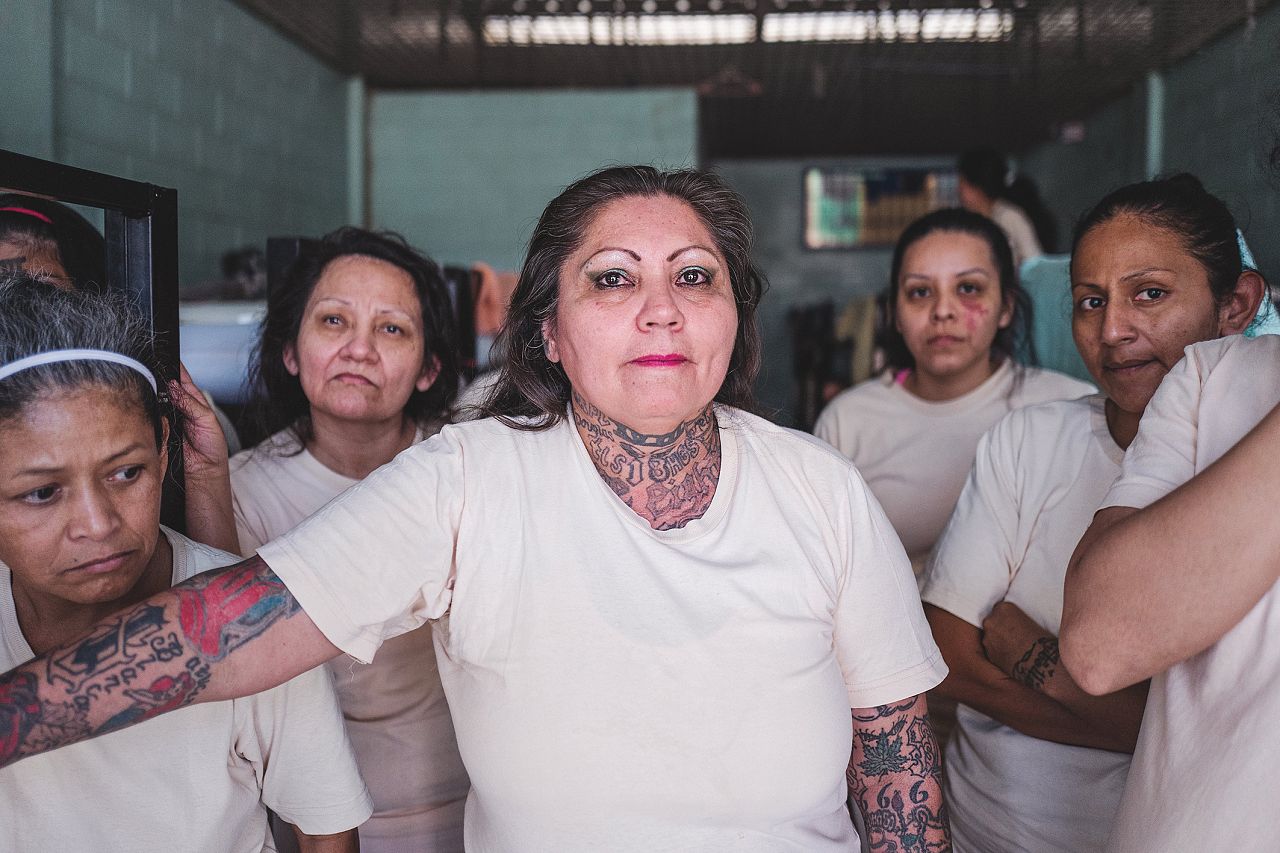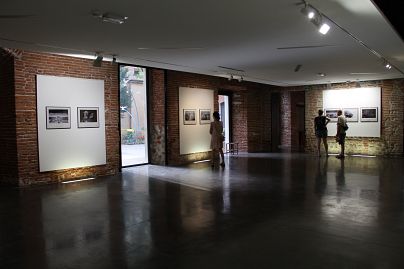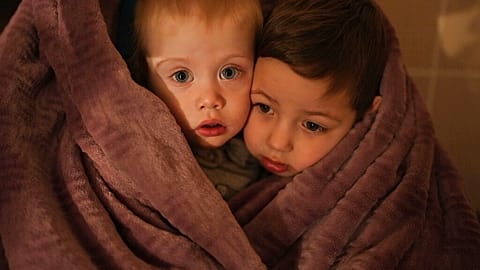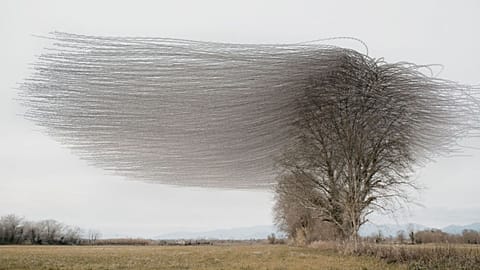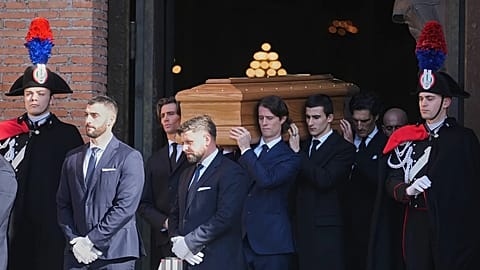Visa pour l'image : Photojournalism in the spotlight at Perpignan
From the war in Ukraine to witnesses and whistleblowers, this year's international photojournalism festival in Perpignan provides a thought-provoking and stimulating window on the world.
So many festivals have reopened to the public this year after the pandemic, giving thousands a chance to enjoy simple pleasures and perhaps for a moment escape everyday woes. The International Photojournalism festival, Visa pour l'image, does exactly that and presents a snapshot of the past that can create a long-lasting memory.
The event, held in the southern French city of Perpignan, also offers visitors the chance to meet the people behind the pictures that sometimes go viral or any particular day's news.
Ukraine war through the lens
Mission creep does not only affect those fighting on the frontline. Even if we are seeing less news about Ukraine in the media, in Perpignan, the conflict is ubiquitous.
Festival director Jean-François Leroy, reminds us that "since 2014, the Committee to Protect Journalists has recorded the deaths of twenty journalists in Ukraine."
On the walls of the Caserne Gallieni in the city center, visitors can observe and admire the incredible work of Mstyslav Chernov and Evgeniy Maloletka, two Ukrainian photographers who covered the siege of Mariupol for the Associated Press.
The tragic story of a young child, Kirill, is told frame by frame over 18 months: his father carrying him in his arms, the medics trying to save his life and his parents grieving his death.
Euronews Culture ran into Evgeniy Maloletka as he left the exhibition on Bucha. His picture is on every poster of the festival.
"All platforms to show the reality of the ground are important. We appreciate that all the work we did in Mariupol is becoming stronger but when we were there, we did not understand it. It was really horrible and disturbing. We were trying to survive and to show how it was, with a specific focus on medical and humanitarian staff."
When asked about his exfiltration from the city, he explained that it was becoming impossible to work: the hospital was surrounded, the next building was occupied by Russian troops, and there were strikes every 20 minutes. His thoughts are for the people who helped him and his colleague to leave.
His work is nominated for the Visa d'Or News, one of the main awards of the festival.
A window to the world
Ukraine is not the only focus. For Leroy, the program should not be restricted "to one single event, no matter how important it is." A key theme this year is the environment, with eye-opening exhibitions designed to resonate and stop the visitors in their tracks.
Alain Ernoult went from being a war photojournalist to a wildlife photographer. His work is dedicated to endangered species and the 6th Extinction. His photos create an echo with Brent Stirton's work about Bushmeat and Epidemics, a project he started two years before the pandemic. A timely reminder that photo-journalists can be both witnesses and whistleblowers.
On the wall of the Dominican chuch, visitors are confronted with images of women dressed with beige penitentiary uniforms. Ana María Arévalo Gose's camera takes us inside the female prisons of Latin America, and documents daily life, boredom and promiscuity. Many of these women see their fundamental rights denied behind bars. Last year, Arévalo Gose won the Camille Lepage Award, named after the French journalist killed in Central African Republic in 2014.
Celebrating the risk-takers
Over its two week duration an estimated 300,000 visit the festival.
"I think that photography is more striking than videos, because it is a frozen moment, it is harsher and more memorable," says Eric, a visitor from Montpellier. His friend Maxime agrees. "Facial expression through photography, that's what is meaningful."
In an increasingly precarious profession, with a growing number of freelancers and photographers working with adequate safety or protection measures such as insurance, bulletproof jackets or even helmets, Visa pour l'image reminds us of the value and the cost of taking pictures to capture the world.
As independent French photojournalist Jean-Claude Coutausse writes: "An image never tells the truth, but we can avoid making it lie."
Visa pour l'image takes place in Perpignan until 11 September. Some of the work can be seen online on the website: https://www.visapourlimage.com/


